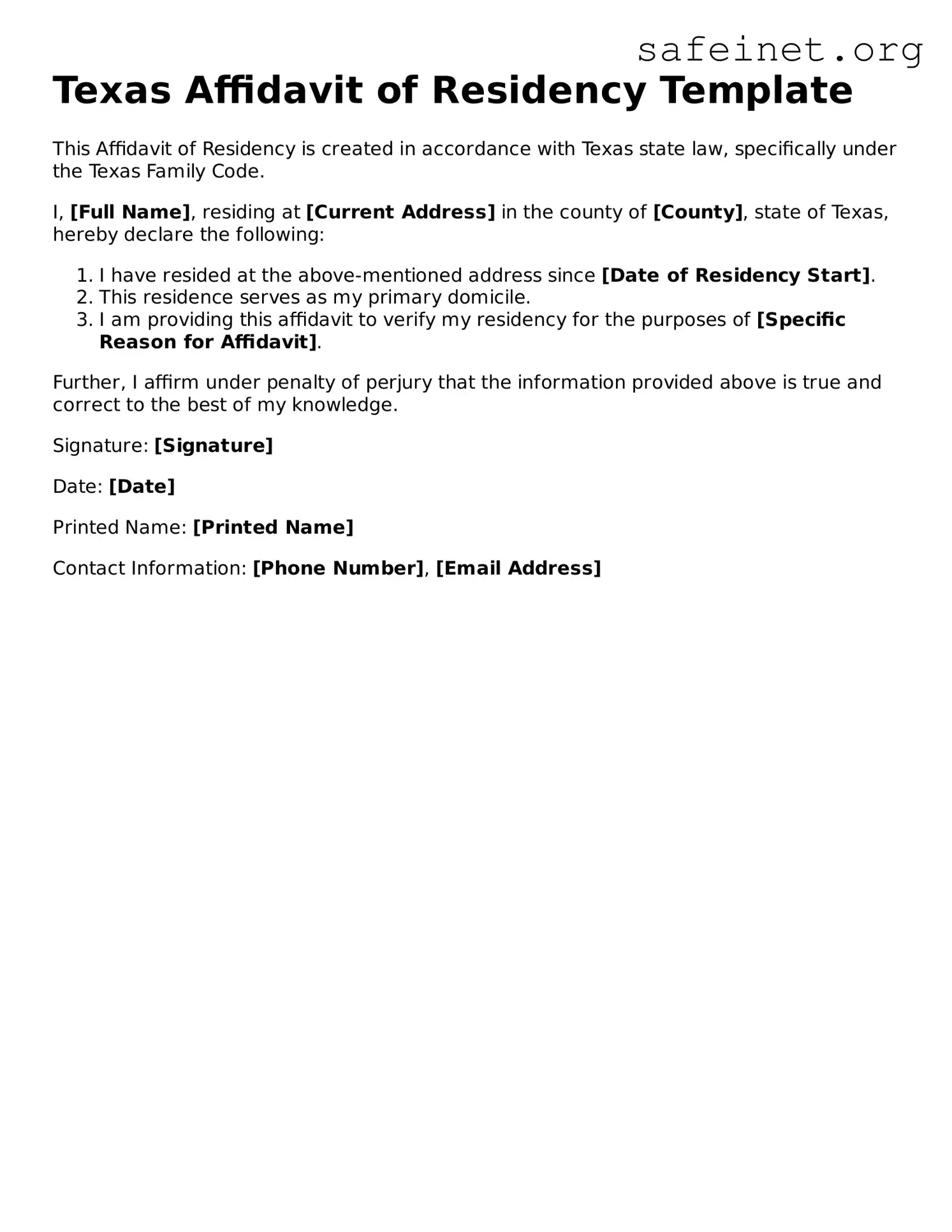What is a Texas Affidavit of Residency form?
The Texas Affidavit of Residency form is a legal document that allows individuals to declare their residency in Texas. It serves as proof of where a person lives and may be used for various purposes, such as enrolling in schools or obtaining benefits in the state. This form helps to establish a local address, which can be crucial for various applications and services.
Who needs to complete the Texas Affidavit of Residency?
This form is typically completed by residents of Texas who need to provide verification of their residency status. Common users include parents enrolling their children in public schools, individuals applying for government assistance, or anyone needing to prove their residence for legal matters.
What information is required to complete the form?
To complete the Texas Affidavit of Residency, you will need to provide certain details, such as your full name, address, and the length of time you have lived at that address. You may also need to include information about the individual confirming your residency, such as their name, address, relationship to you, and their signature. Always ensure that the information is accurate and current.
Do I need witnesses to sign the Affidavit of Residency?
In most cases, a witness is not required when signing the Affidavit of Residency form. However, you may want to check specific local requirements or guidelines, as some institutions might have their own stipulations about witness signatures. Always review the instructions associated with your application for clarity.
Where should I submit the completed document?
The completed Texas Affidavit of Residency should be submitted to the specific institution or agency that requires it. This could include public schools, local government offices, or other organizations that need to verify your residency. Ensure you keep a copy of the submitted document for your records.
Is there a fee associated with filing the Texas Affidavit of Residency?
Generally, there is no fee for completing and submitting the Texas Affidavit of Residency form. It is a straightforward document meant to help establish residency, and institutions typically do not charge for its submission. However, if you are required to provide additional documentation, fees might apply to those services.
How long does it take to process the affidavit?
Processing times can vary based on the organization receiving the affidavit. In many cases, the information can be verified quickly, especially if submitted in person at a local office. It's best to inquire directly with the specific agency or institution about their timelines for processing the form.
Can I make changes to the affidavit after it's been submitted?
Once the Texas Affidavit of Residency has been submitted, making changes can be challenging. If you find that any of the information is incorrect, it’s advisable to contact the organization to discuss the best course of action. You may need to submit a new affidavit or provide additional documentation to rectify the error.
